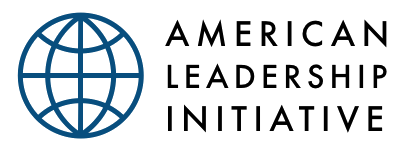Frontier Justice: A New Approach For U.S. Rule Of Law Assistance
/Robert M. Perito and Ambassador Donald J. Planty recently published a new report on United States rule of law assistance, entitled Frontier Justice” A New Approach to U.S. Rule of Law Assistance. The report is focused on U.S. aid to three categories of states in crisis that are important to U.S. national security interests: (1) the northern-tier states of Central America—Guatemala, El Salvador, and Honduras—that are experiencing extreme levels of organized criminal violence; (2) Pakistan, Tunisia, and Mali, where international Islamist terrorists are attempting to impose extreme versions of Shariah law; and, (3) Azerbaijan and Venezuela, where corrupt, authoritarian regimes have morphed into kleptocracies. The project looked at these case studies from a Washington policy and funding perspective and visited them to meet with government officials, political activists, civil society representatives, and U.S. Embassy officials.
From the Washington perspective, the study found that U.S. rule of law assistance lacks a common policy, doctrine, and strategy. There is no central administrative coordinating mechanism. No one knows the total amount of money the U.S. spends on rule of law assistance each year. In the field, the project team discovered that U.S. representatives do not prioritize rule of law programming. Embassies fail to provide leadership, build consensus, coordinate donor support and use diplomatic leverage. Assistance programs are not strategically focused and designed to produce sustainable change. Program funding is spread among programs ensuring that individual projects are under resourced and unable to mobilize external support.
As a result, the report recommends that the U.S. needs to adopt a new approach to rule of law assistance that begins by implementing the President’s 2017 National Security Strategy that calls for dismantling transnational organized crime. This would require a presidential directive to create an NSC-Policy Coordinating Committee responsible for U.S. rule of law assistance policy, strategy, program selection and funding allocation. Implementing this approach would require recruiting and training a cadre of government personnel with rule of law experience and a knowledge of the history, politics and culture of target countries. It would also involve tasking U.S. Ambassadors abroad to use their political influence and diplomatic leverage to promote rule of law assistance and coordinate the efforts of like-minded donor countries.
The report comes at a critical time. Rule of law is the superstructure of democracy which is under attack worldwide. Implementing the report’s recommendations would increase the effectiveness of U.S. rule of law assistance to democratic governments and civil society activists in countries that are important to U.S. foreign policy and national security interests.
The study was funded by a grant from the Smith Richardson Foundation. The report is available on the Public International Law and Policy Group’ website at https://www.publicinternationallawandpolicygroup.org/frontier-justice-rule-of-law-summary-report.


